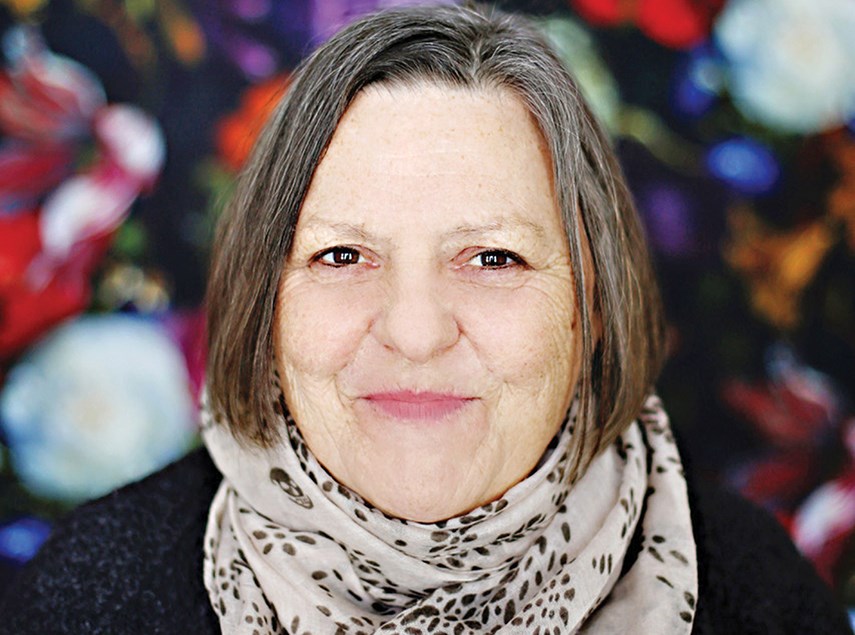Kay Meek Arts Centre presents a Play Reading Series, curated and hosted by Nicola Cavendish, May 27-31 at 7 p.m. Each night a different play is read by a cast of professional actors followed by a talk-back and discussion with the playwright. Pay-what-you-can pricing. Reserve at kaymeek.com or call 604-981-6335.
Nicola Cavendish has sympathy for playwrights.
Since transitioning from theatre actor to script writer, Cavendish has become a protector of playwrights’ “tender hearts.” In an effort to shield artists from avoidable criticism, Cavendish created a space for them to beta test plays in progress.
The Play Reading Series was conceived after Cavendish became taken with the intimate feel of the studio theatre within the Kay Meek Arts Centre. The layout of the studio puts the audience at stage level for a closer examination of the words spoken by professional actors.
An intentional lack of props and pageantry during play readings elicits an honest response from outsiders to the theatre world.
Penned by well-established and new playwrights, these plays have been sitting in a purgatory of sorts. The script is on a fourth or fifth iteration but still needs a final polishing in the form of audience feedback.
“You suddenly can hear, as a playwright, where the gaps are, what needs to be cut, where to develop the character more, where the plot disappears – all of those things are essential to be able to make a tight and tidy, and wonderful piece of writing,” explains Cavendish.
Heading into her third season of the Play Reading Series, Cavendish is thrilled with the literary lineup.
Longtime Vancouver Sun arts critic-turned playwright Max Wyman is back for another Kay Meek play reading – this time promising to pull on the audience’s heartstrings. Amazing Grace is described as a raw and affecting drama that probes a family of damaged souls – and their search for redemption.
“His second play has really shown incredible development in terms of what it means to tell a story dramatically for the stage,” effuses Cavendish. “It’s lean, it’s tough, it’s intriguing and it’s got a wonderful title – Amazing Grace – which is reflected in the piece.”
The week of readings kicks off with After Jerusalem, a “solid” offering from playwright Aaron Bushkowsky, who has impressed Cavendish.
“He’s got an amazing gift with dialogue and creating character,” says Cavendish.
After Jerusalem is a romantic comedy about a middle-aged Canadian school teacher’s attempt to find love in Israel by pretending to be a famous actor. The charade goes sideways after the woman meets an Israeli security guard at the airport.
“And all the bells and whistles go off as she goes through [security], and that’s where it starts. So it’s beautiful, it’s funny, it’s provocative – it’s food for thought,” explains Cavendish of After Jerusalem.
Tuesday night’s reading of The Distance Between Newfoundland And Toronto will see Dolores Drake perform double duty as author and actor. Turbulence strikes during this comedic play when character Theresa Madonna Molloy leaves “The Rock” for the first time.
“Dolores has been working on this piece for a long time,” says Cavendish of the established actress.
Wednesday will bring a wild and wacky show courtesy of local playwrights Linda Carson and Suzanne Ristic.
Driving Me Crazy is about a family, their relationships with themselves, each other and the vehicles that move them around. Anyone who has driven, or been driven, around the Lower Mainland lately will find this play annoyingly relatable.
Capping off a week of play readings is The Doug MacDougalls. What happens when a group of men who all share the same name meet in one place? Find out Friday night.
Low production costs for the play readings results in pay-what-you-can pricing – opening up the Kay Meek theatre to another audience.
“It’s a win-win situation,” says Cavendish. “Most people never get to hear a play in progress.”
Asked what makes a script compatible for this raw format, Cavendish says it has to follow an audience-friendly structure in terms of development of story.
“They’ve got to have merit from the point of view of what’s been said, what’s been shared, what’s been considered on the page – all of that comes into play,” she explains.
Vulnerability can run high for playwrights as they watch their art unfold on stage for the first time.
A facilitated talk-back session follows each performance, offering a rare opportunity for the writer to receive constructive feedback from the audience.
For Cavendish, who currently has 15 scripts “percolating in her brain,” she would welcome the chance to offer up her creative works to be scrutinized.
“It’s so hard for playwrights to get an audience that will sit and sort of listen in the process,” she says.
These days Cavendish is focusing on writing plays, after retreating from acting on stage. The physical and emotional demands of the theatre have caught up with her.
“I recognize there’s only so much time left,” says Cavendish. “If I don’t write a play again … then I will go to my grave sad.”



